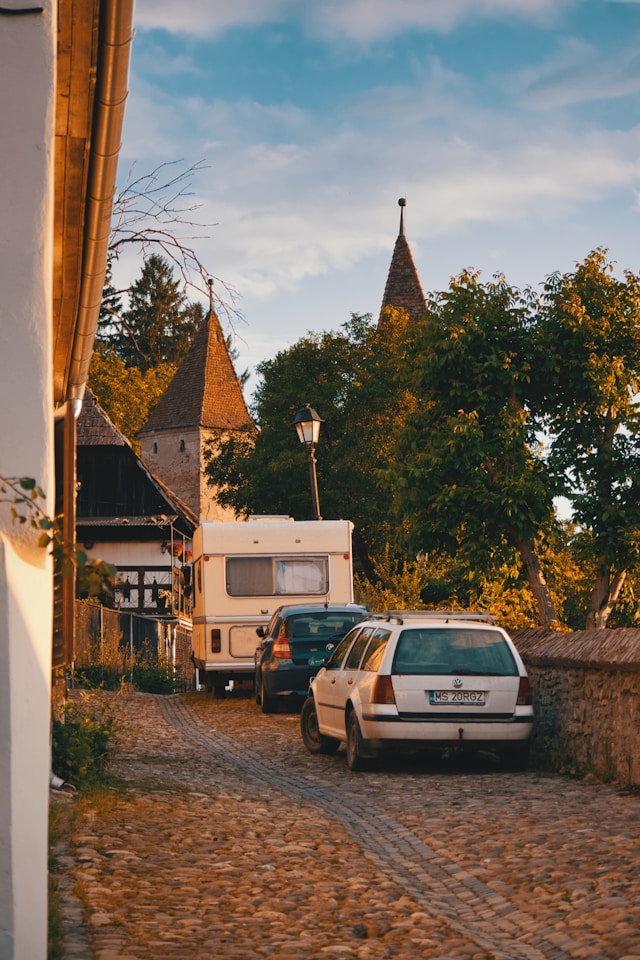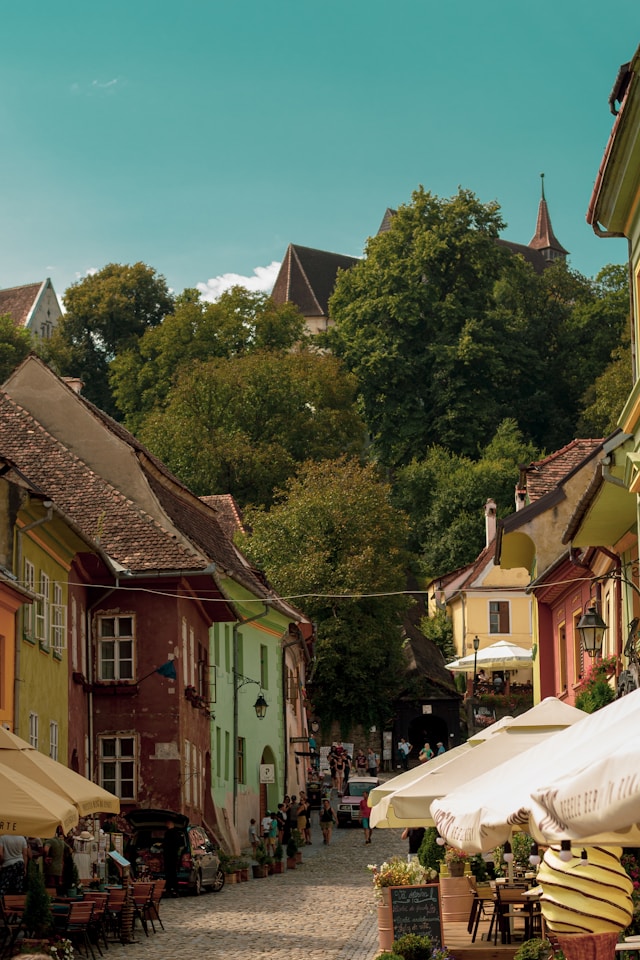
Retail Real Estate in Transylvania: How Local Brands Are Thriving in Smaller Cities
In recent years, the retail real estate landscape in Transylvania has seen a notable shift. While larger cities like Cluj-Napoca and Brașov continue to attract significant investment, there’s a growing trend of local brands thriving in smaller cities such as Sibiu, Alba Iulia, and Sighișoara. This emerging movement reflects both a change in consumer behavior and an adaptation by local businesses to capitalize on evolving market demands. In this article, we’ll explore why local brands are increasingly choosing smaller cities and how retail real estate is adapting to accommodate this growing phenomenon. One of the major factors driving the success of local brands in smaller cities is the rise of localism—a movement that emphasizes supporting local businesses and prioritizing locally produced goods. As global supply chains experience disruptions and consumers seek more authentic, community-oriented shopping experiences, local brands have found themselves in an advantageous position. This shift has been particularly pronounced in Transylvania, a region known for its rich cultural heritage, artisan traditions, and tight-knit communities. Smaller cities in Transylvania, such as Sibiu and Alba Iulia, have embraced this trend by fostering an environment where local brands can flourish. Consumers in these areas tend to prefer shopping locally, especially in retail spaces that reflect the culture and values of their region. Additionally, the COVID-19 pandemic accelerated this trend, as more people began to value sustainability, transparency, and the local economy over mass-produced goods and international brands. While large cities continue to be hubs for retail activity, there are several reasons why local brands are choosing smaller cities in Transylvania to set up shop: One of the primary reasons local brands are flocking to smaller cities is the lower cost of real estate. Retail spaces in major cities like Cluj-Napoca and Brașov come with hefty price tags, making it difficult for smaller, local brands to secure prime locations. In contrast, smaller cities offer more affordable retail spaces, allowing businesses to allocate more resources to other aspects of their operations, such as marketing and product development. Many smaller cities in Transylvania represent untapped or underserved markets. In towns like Sighișoara and Alba Iulia, local businesses can address the specific needs and preferences of their communities, often without facing direct competition from international chains. By offering personalized services, locally sourced products, and a sense of community, these brands are able to build strong customer loyalty in regions that larger brands may overlook. Local brands often thrive in smaller cities because of the strong sense of community that exists there. Unlike in larger cities, where consumers may have an overwhelming number of options, shoppers in smaller towns often have a deeper connection with the businesses they frequent. Local brands in cities like Sibiu have leveraged this dynamic by creating personalized shopping experiences, building strong relationships with customers, and engaging in community-oriented events. The retail real estate market in Transylvania’s smaller cities has adapted to accommodate the rise of local brands, with both developers and local governments recognizing the economic potential. Several trends have emerged as a result of this adaptation: As local brands in smaller cities tend to operate on a more modest scale than large multinational companies, there has been an increased demand for smaller, flexible retail spaces. Real estate developers in cities like Alba Iulia and Sighișoara are responding by creating retail spaces that are more adaptable and affordable. These spaces are designed to accommodate various types of businesses, from artisanal shops to specialty cafes, offering versatility that larger retail centers often lack. To support the growing retail sector in smaller cities, there has been an increased focus on mixed-use developments. These developments, which combine residential, commercial, and retail spaces, create vibrant communities where residents can live, work, and shop in the same area. This model is particularly attractive to local brands, as it places them in the heart of the community and ensures a steady flow of foot traffic. Recent projects in Sibiu, for example, have integrated retail spaces into residential neighborhoods, providing convenience to both residents and business owners. A key element of local brand success in Transylvania’s smaller cities is their ability to maintain and reflect the region’s cultural identity. This is evident in the design of retail spaces, which often incorporate traditional architectural elements or showcase local craftsmanship. Real estate developers and local governments have worked together to ensure that new retail developments in these cities preserve the historic charm and cultural heritage that Transylvania is known for. Sighișoara, a UNESCO World Heritage site, offers a compelling example of how local brands are thriving in smaller cities. The town’s medieval charm and historical significance make it a popular destination for tourists, but it’s the local businesses that capture the attention of both visitors and residents alike. From locally-owned boutiques selling handcrafted goods to family-run restaurants offering traditional Transylvanian cuisine, Sighișoara has become a hub for local brands that seamlessly blend commerce with cultural preservation. Retail spaces in the city center have been carefully curated to reflect the town’s unique character. Many of these spaces are housed in restored medieval buildings, offering a shopping experience that is both authentic and immersive. For local brands, this distinctive retail environment provides a competitive edge, allowing them to stand out in a crowded marketplace and attract a loyal customer base. As local brands continue to thrive in Transylvania’s smaller cities, retail real estate is evolving to meet their needs. Lower costs, untapped markets, and a strong sense of community have made cities like Târgu Mureș, Alba Iulia, and Sighișoara attractive destinations for local businesses. With an increasing focus on flexible retail spaces, mixed-use developments, and the preservation of cultural identity, the future of retail real estate in these cities looks promising for both investors and local entrepreneurs. In an age where consumers are seeking more authentic and sustainable shopping experiences, the success of local brands in Transylvania’s smaller cities is a trend worth watching.The Rise of Localism in Retail
Why Local Brands Are Choosing Smaller Cities
1. Lower Real Estate Costs
2. Underserved Markets
3. Community Engagement and Support

Adapting Retail Real Estate in Smaller Cities
1. Smaller, Flexible Retail Spaces
2. Focus on Mixed-Use Developments
3. Preserving Cultural Identity

Case Study: Sighișoara’s Local Brand Renaissance

